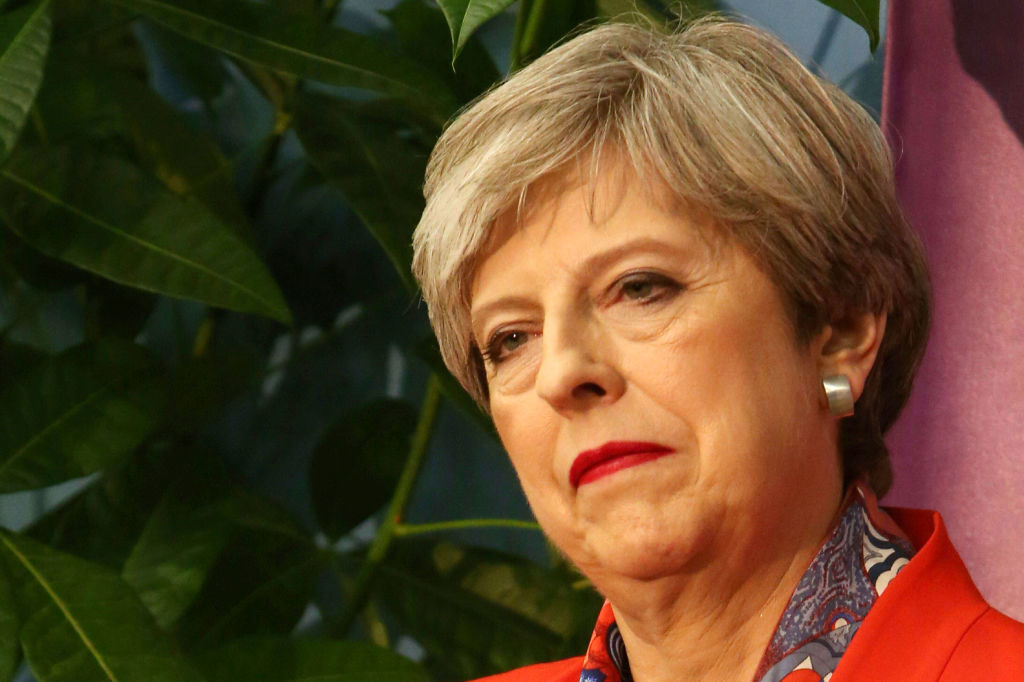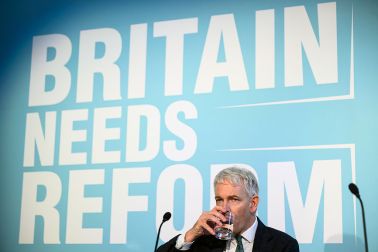Theresa May’s election gamble hasn’t paid off. Yet in spite of the PM blowing her majority, May has vowed to carry on and offer ‘certainty’ to Britain. Overnight, May’s miscalculation has transformed her from an ‘iron lady’ into a ‘wobbly’ political figure in the eyes of the European press. Here’s how the general election has been covered on the continent:
Germany:
Germany’s largest daily newspaper Süddeutsche Zeitung rounds on Theresa May, branding her a ‘terrible election campaigner’ and contrasts the ‘strong and stable’ image that she sought to present with what was perceived as a very weak campaign. The newspaper explores her behaviour as Home Secretary and suggests that her key tactic of withdrawing from the political debate at times of pressure, which was evident during the EU referendum, simply did not work when she reached Downing Street. There is also criticism of the way in which May attempted to ‘feed the voters with slogans’, the newspaper suggesting that she did not treat the electorate like adults.

The Frankfurter Allgemeine Zeitung interprets Theresa May’s failure to achieve an overall parliamentary majority as a sign that the British public may not share her desire for a ‘hard Brexit’. The paper goes on to suggest that this is a sign the public does not have faith in Theresa May’s ability to negotiate a new relationship with the EU on behalf of the UK. In this way, the election result could empower those who would like to see a softer Brexit. But as the Frankfurter Allgemeine also warns, it could lead to an even more messy exit from the EU.
Die Welt questions Theresa May’s decision to call a general election immediately after triggering Article 50 and beginning Brexit talks. Although slightly unorthodox, this strategy would have worked had she been returned with an increased majority. Die Welt points out that the clock is now ticking down to the UK’s exit from the EU in April 2019 and this new uncertainty represents a ‘gigantic, costly, almost negligent’ loss of negotiating time. The newspaper warns now that it could be months until the UK Government can confidently begin Brexit negotiations.
The Spiegel magazine focuses on the severe political and economic uncertainty now facing the UK. It warns that, as jobs flow from the City of London and tensions rise with Scotland and Northern Ireland, the UK is in desperate need of an ‘iron lady’. Instead, the newspaper taunts, Britain is saddled with a ‘wobbly lady’.

The tabloid Bild argues that Theresa May’s numerous U-turns, most notably on calling an election and the so-called ‘Dementia Tax’, played a crucial role in her losing the confidence of voters. Furthermore, the newspaper says that the recent terror attacks in Manchester and London have drawn attention to Theresa May’s record as Home Secretary, in particular her overseeing of significant cuts to police numbers.
France:
Le Monde reflects on the events of the last year and suggests that the 2016 vote to leave the European Union set in motion what it describes as a ‘nightmarish political sequence’ for the UK. With just 11 days until Brexit negotiations are due to begin, the newspaper draws attention to the ‘stupidity’ of the process whereby the UK will seek to retain as many links with the EU as possible. As for Theresa May, Le Monde says she has suffered a ‘failure on all fronts’ and has no one to blame but herself.
 Le Monde also considers Jeremy Corbyn’s election campaign, suggesting that Labour’s strong performance will reinforce his position as leader and firmly shut the door on the New Labour era which saw three consecutive general election victories. The newspaper compares Corbyn to Bernie Sanders of the United States and Jean-Luc Mélenchon of France, praising the way in which he galvanised the youth vote by focusing on issues such as inequality and austerity.
Le Monde also considers Jeremy Corbyn’s election campaign, suggesting that Labour’s strong performance will reinforce his position as leader and firmly shut the door on the New Labour era which saw three consecutive general election victories. The newspaper compares Corbyn to Bernie Sanders of the United States and Jean-Luc Mélenchon of France, praising the way in which he galvanised the youth vote by focusing on issues such as inequality and austerity.
Libération looks north of the border to Scotland and draws attention to the irony of the situation: the Conservatives will likely be able to remain in power thanks only to gains from the nationalists in Scotland. The SNP lost 21 seats to the Scottish Conservatives, the Liberal Democrats and Scottish Labour, an upset which Libération attributes to the SNP’s record in government and Nicola Sturgeon’s insistence on holding a second independence referendum.

Spain:
El País reports that Theresa May simply could not settle for being Theresa May – but wanted to go further and become the new Margaret Thatcher. This, according to the newspaper, led her to ‘fall into temptation’ and call a snap election in an attempt to reinforce her own position and that of her party. Theresa May, it is suggested, was ‘the adult in the schoolyard’ compared to her 2016 leadership contenders,: Johnson, Gove and Leadsom. However, during her first challenging electoral campaign, she turned from being a mystery onto which voters could project their own desires into what El País describes as a ‘naked empress’.







Comments